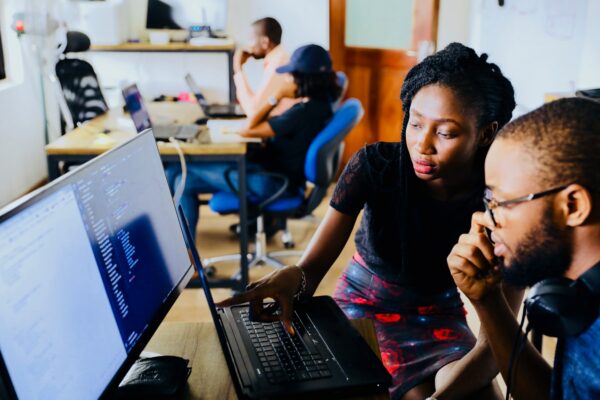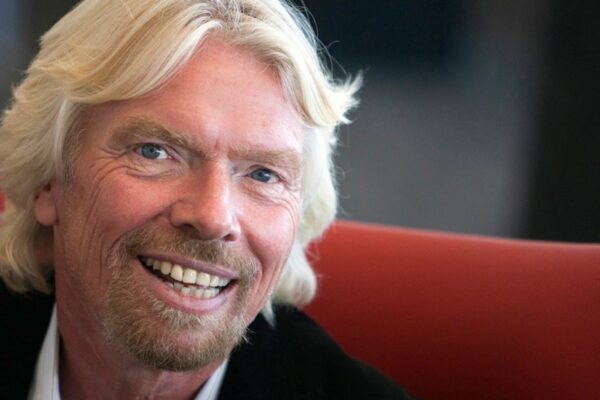Can you make a business from shopping bags? Can you make shopping bags eco-friendly? There is actually a way to make them both – saving the planet from plastic bags and do a business out of it. What can be better for a Greenpeace volunteer?
Hi Faith. Welcome to Entrepreneur Interviews. First, tell us a little bit about yourself.
Faith: The environment and other ethical issues have been something that has always interested me, and I believe to be of the utmost importance. I have always tried to put this into practice in my everyday life and raise awareness of these issues through my work as a teacher and the various volunteer positions I have taken over the years at Greenpeace, Friends of the Earth, and Amnesty.

And a few words about your business?
Faith: Bags of Change is totally unique. Our beautiful shopping bags are not only attractive and affordable alternatives to throwaway plastic bags, but they also give customers a great discount incentive to shop ethically in over 70 shops across the UK, www.bagsofchange.co.uk/shops.
So, by helping to change people’s shopping habits, we’re also helping to reduce the amount of plastic bags used in the UK and supporting small, independent, ethical retailers at the same time.
As we like to say, ‘It’s all in the bag!’
I never thought you could actually do a business from … bags. How did you come up with the idea?
Faith: I wanted to find a way to help shoppers to remember to bring their own bags to the shops. No matter how good our intentions, we all inevitably forget sometimes.
However, we don’t tend to forget our wallet when we go shopping, so it occurred to me that this would be a great way to jog people’s memories – give them a bag with added value. A bag that would save them money on their shopping.
I think the success of Bags of Change is in offering something new and different. It is a bag business but much more than that too. It has an extreme ethical focus, and the time was right.
You’ve mentioned something interesting. The ethical shopping loyalty scheme. What’s this exactly?
Faith: Besides offering shoppers a bag that they would reuse, I wanted to encourage people to shop more ethically and support the local independent shops that offer us that option. So Bags of Change promotes these shops through its website, and newsletters and the shops offer a discount to anyone shopping with a Bags of Change bag to encourage repeat and new custom. We are essentially building an ethical shopping community, and it is working.
With the current economic downturn, do people still think green?
Faith: I do think people are more cautious about how they spend their money at the moment, but that is where our loyalty scheme can help. Our affiliated shops offer up to 10% discount on organic, Fairtrade, and sustainable food, clothing, gifts, and household products. Even in the current climate, many shoppers still want to do the right thing and make ethical shopping choices. Bags of Change can help them do that.
One of our retailers told us just last month that, yes, they’re feeling the credit crunch but that our bags are selling well and that they have really noticed an increase in loyalty from customers who have bought a Bags of Change bag:
“They constantly come back to shop with them here, to get discounts here. Some, I know, choose us over other shops that are closer to them because they get the Bags of Change discount.
“My customers really like the bags, and the scheme makes them feel part of a community of ethical shoppers.”
I know you are a teacher. That’s not really related, but how can people be educated to have a green attitude?
Faith: I think education is the key, and as a business, we try to pass this on to through our free newsletter www.bagsofchange.co.uk and our blog in which we regularly discuss key ethical shopping issues: www.bagsofchange.co.uk/blog
What investments are needed to start a business like yours?
Faith: Our biggest outlay to date is the bags themselves. A lot of time goes into sourcing ethically and finding a quality product with strong green credentials. Our cloth bags are made from beautiful organic cotton and soft hemp fabric and hard-wearing at the same time. The rubber bags are made from a wonderful material: sustainably tapped and fairly traded rubber that looks and feels like leather.
Have you ever thought about starting a franchise so other people could take their chance to make shopping more environmentally friendly?
Faith: Yes, I’ve thought about it a lot. We’ve been getting a lot of interest from America, Australia, and Northern Europe. Still, at the moment, I think it is essential to concentrate on building the business in the UK. It is definitely something we will seriously consider in the future.
What’s the typical user for your bags?
Faith: I wanted a range of bags that would sell themselves to open up the idea of shopping more responsibly to a broader audience. You buy the bag, and when you join the Bags of Change community, receiving our e-newsletter and visiting your local Bags of Change retailers. We definitely seem to be reaching the ‘light greens’ and the ‘dark greens.’
Bags of Change was voted ‘Best Green Company’ in the 2007 Green England Awards. How did that feel?
Faith: It meant a lot to us particularly because it was a public vote, and, of course, it had such a positive impact on the business. We have just found out that we are on the shortlist for “Most Innovative Green Product“ in this year’s Green England Awards! People can vote for us until 28 November 2008 at www.green-england.co.uk/greenawards.
I’m inquisitive; what was your closes competitor to this award?
Faith: Funnily enough, it was another bag company!
How do people actually get to buy your bags? Where do they hear about it?
Faith: Our bags are sold at over 70 retailers across the UK, all of which are listed by area at www.bagsofchange.co.uk/shops. Those that don’t yet have a shop nearby can buy their bag through the website.
So what kind of promotion works best for a green small business?
Faith: We have had some great press coverage since the launch of www.bagsofchange.co.uk/press, and I think that’s because our business is so innovative.
Any plans to expand into other products?
Faith: We are focusing on our bag range right now. We have exciting plans for a new bag which is at the research stage. Watch this space.
Any collaboration with the big retailing shops?
Faith: No, that doesn’t really fit with the business model. For me, the independents on our local high streets are the key to the vitality of our communities. Let us support them at every turn.
Any regrets so far about the business?
Faith: Time! The business has grown quickly, but there is still so much I want to do with it. The priority right now is expanding the range and ensuring that we are moving towards becoming more and more green and socially aware of the range of bags we offer to our shoppers.
Where are the bags manufactured?
Faith: All our bags are ethically sourced and produced. Our range of fairly traded rubber bags, for example, are sourced from the Amazon, where their production is providing a sustainable alternative for the economic development of the Rainforest. The rubber is tapped by a local cooperative which is FSC certified.
It is important that not only are the bags ethically sourced but that they also look and feel great. The design and function are as important; otherwise, people won’t buy or use them. We are determined to change people’s shopping habits in the UK – first here, then the world!




